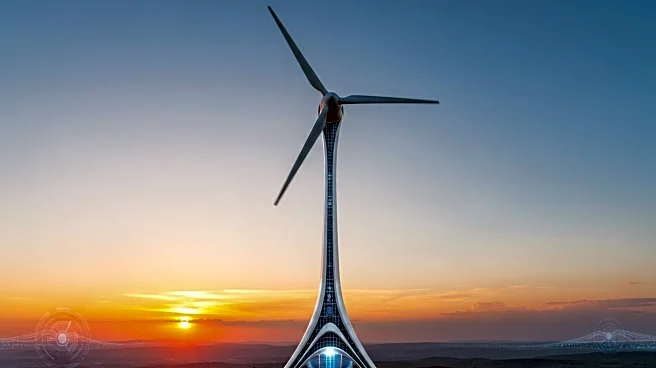What's Happening?
Fortescue Ltd has announced a series of international partnerships aimed at accelerating industrial decarbonization and achieving 'Real Zero' emissions by 2030. The announcement was made during Climate Week NYC and the UN General Assembly. The partnerships involve collaborations with leading technology and manufacturing companies across continents, including BYD for energy storage and electric vehicles, LONGi for solar technology, Envision Energy for wind turbines and storage, and XCMG for battery-electric mining trucks. Fortescue plans to electrify its fleet with up to 400 zero-emission haul trucks and electric excavators, with deliveries expected between 2028 and 2030. Additionally, Fortescue has acquired Nabrawind, a Spanish renewables innovator, to enhance its wind energy capabilities.
Why It's Important?
This initiative by Fortescue is significant as it positions the company as a leader in industrial decarbonization, a critical step in combating climate change. By integrating a green energy supply chain, Fortescue aims to outcompete fossil fuels on cost, leveraging China's manufacturing scale and European and American innovation. The move comes amid increasing scrutiny of corporate emissions and the growing legal, regulatory, and financial pressures on heavy industries to address climate change. Successful implementation of these partnerships could set a precedent for other industries, demonstrating that profitability and sustainability can coexist.
What's Next?
Fortescue's next steps involve the deployment of the zero-emission fleet and the expansion of its wind energy projects. The company will continue to build on its existing innovation ecosystem, including collaborations with CSIRO and the establishment of Fortescue Zero hubs in the U.S., U.K., and Australia. The success of these initiatives will likely influence other companies in the sector to adopt similar strategies, potentially leading to broader industry shifts towards sustainable practices.
Beyond the Headlines
The partnerships reflect a broader trend of international cooperation in addressing climate change, reminiscent of the collaboration fostered by open trade. This multilateral approach could pave the way for more global initiatives aimed at reducing emissions and promoting renewable energy. The success of Fortescue's strategy could also influence policy decisions and encourage governments to support similar industrial decarbonization efforts.









